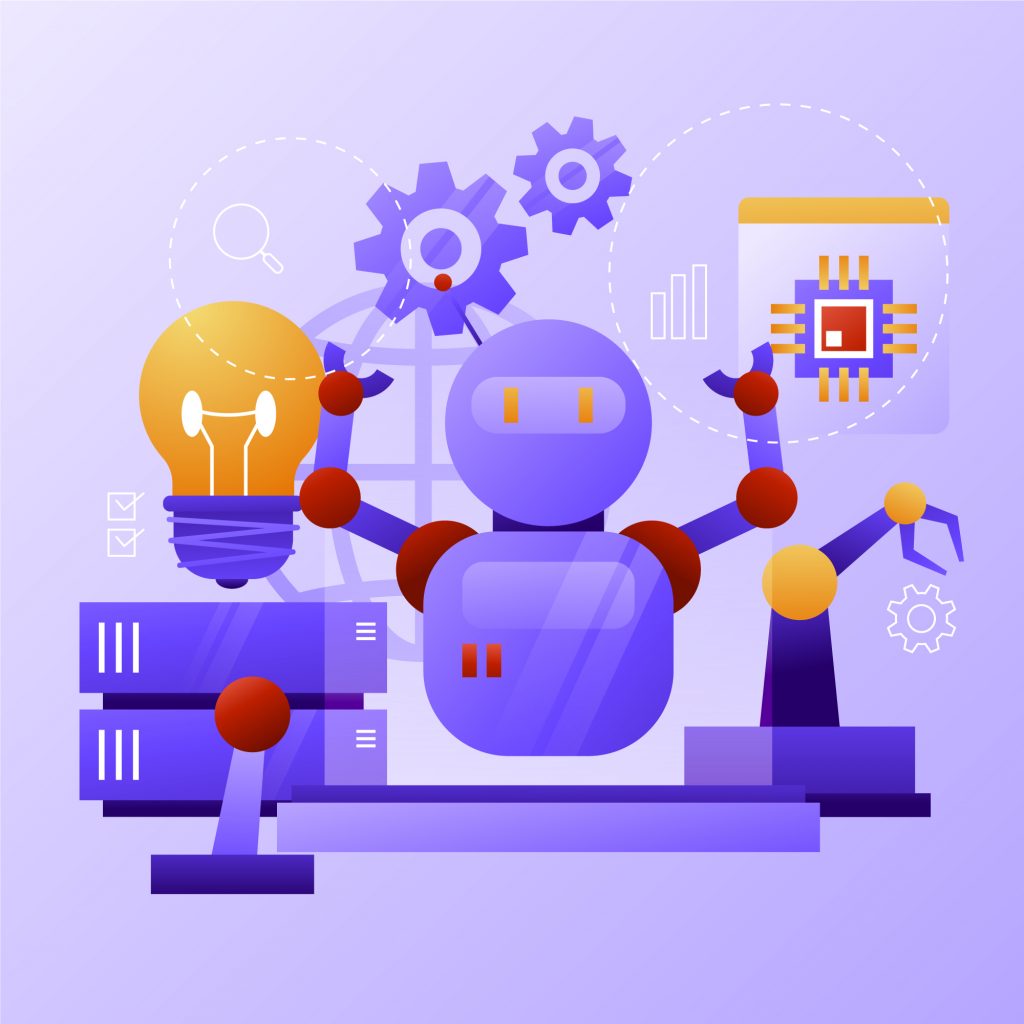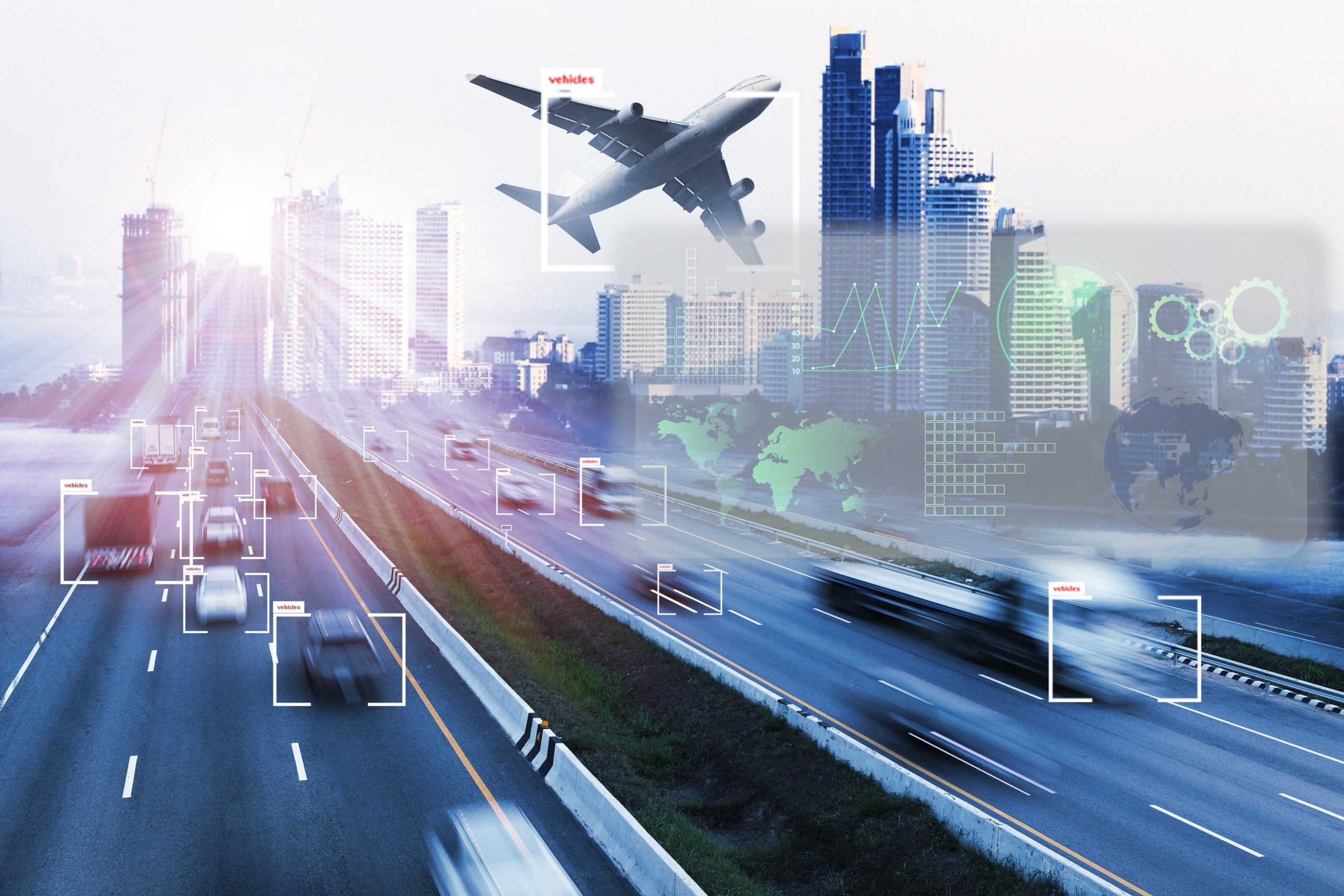Your cart is currently empty!
AI Transforming Industries
Back to: MAIS AI Essentials
Introduction to AI in Industries
Artificial Intelligence (AI) has become a cornerstone of innovation across industries, transforming how organizations operate and deliver value. By automating processes, enhancing decision-making, and enabling predictive insights, AI is revolutionizing traditional workflows and opening doors to entirely new possibilities.
AI’s versatility is one of its greatest strengths. Unlike tools designed for a single purpose, AI adapts to the needs of different industries, seamlessly integrating into existing systems and offering tailored solutions. For instance, in healthcare, AI analyzes medical data to improve patient outcomes, while in retail, it powers personalized shopping experiences.
Why AI is a Game-Changer for Industries
AI provides industries with the ability to:
- Automate Repetitive Tasks: Freeing up human workers to focus on more strategic and creative activities.
- Process Vast Amounts of Data: Identifying patterns and trends that would be impossible for humans to detect in a timely manner.
- Enhance Decision-Making: Offering data-driven insights that lead to smarter strategies and more effective operations.
- Improve Accuracy and Efficiency: Reducing errors and streamlining workflows, saving time and resources.

These capabilities make AI a transformative force, driving innovation and reshaping the competitive landscape in virtually every field.
Setting the Stage for Real-World Applications
Throughout this lesson, we’ll explore how AI is applied in key industries, such as healthcare, finance, retail, and transportation. By examining real-world examples, you’ll gain a deeper appreciation for AI’s versatility and its potential to address complex challenges.
Introduction to AI in Industries
Artificial Intelligence (AI) has become a cornerstone of innovation across industries, transforming how organizations operate and deliver value. By automating processes, enhancing decision-making, and enabling predictive insights, AI is revolutionizing traditional workflows and opening doors to entirely new possibilities.
AI’s versatility is one of its greatest strengths. Unlike tools designed for a single purpose, AI adapts to the needs of different industries, seamlessly integrating into existing systems and offering tailored solutions. For instance, in retail, AI powers personalized shopping experiences, while in finance, it strengthens fraud detection and automates trading strategies.
Why AI is a Game-Changer for Industries
AI provides industries with the ability to:
- Automate Repetitive Tasks: Freeing up human workers to focus on more strategic and creative activities.
- Process Vast Amounts of Data: Identifying patterns and trends that would be impossible for humans to detect in a timely manner.
- Enhance Decision-Making: Offering data-driven insights that lead to smarter strategies and more effective operations.
- Improve Accuracy and Efficiency: Reducing errors and streamlining workflows, saving time and resources.
These capabilities make AI a transformative force, driving innovation and reshaping the competitive landscape in virtually every field.
Examples of AI Across Industries
AI’s adaptability means it is being applied in diverse ways, such as:
- Retail: AI analyzes consumer behavior to recommend products and optimize inventory.
- Finance: Algorithms detect fraud, manage risks, and provide personalized investment strategies.
- Transportation: Autonomous vehicles and logistics optimization enhance safety and efficiency.
- Energy: AI systems predict power consumption and improve renewable energy integration.
These real-world applications showcase how AI is not just a tool but a critical enabler of progress and innovation in various sectors.
AI in Retail and Customer Experience
AI has transformed the retail industry by making shopping experiences more personalized, efficient, and engaging. From online platforms to brick-and-mortar stores, AI systems analyze customer behavior, optimize operations, and anticipate trends, creating value for both businesses and consumers.

Personalized Shopping Experiences
AI enhances customer satisfaction by delivering tailored recommendations and services.
- Recommendation Systems: Platforms like Amazon and Netflix use AI to analyze browsing and purchasing history, suggesting products or content that match individual preferences.
- Dynamic Pricing: AI adjusts prices based on factors like demand, competition, and customer behavior to maximize sales and profitability.
- Virtual Shopping Assistants: Chatbots and virtual assistants help customers find products, answer queries, and provide support in real-time.
By anticipating customer needs, AI makes shopping faster, more intuitive, and enjoyable.
Optimizing Inventory and Supply Chains
AI plays a critical role in improving backend operations, ensuring that the right products are available at the right time.
- Demand Forecasting: AI predicts future sales trends based on historical data, seasonal factors, and market conditions, helping retailers manage inventory efficiently.
- Supply Chain Optimization: AI algorithms optimize logistics, reducing delivery times and minimizing costs.
- Shelf Management: Smart cameras and AI tools track in-store inventory levels, alerting staff when shelves need restocking.
These innovations reduce waste, improve efficiency, and keep shelves stocked with items customers want most.
Enhancing Customer Engagement
AI-powered tools make interactions with brands more engaging and effective.
- Chatbots: Virtual agents provide 24/7 customer support, answering common questions and resolving issues quickly.
- Sentiment Analysis: AI tools analyze customer reviews and feedback to gauge sentiment and improve products or services.
- Augmented Reality (AR): Some retailers use AI-powered AR to let customers visualize products, like furniture or clothing, in their own spaces.
By leveraging AI, retailers deepen their connection with customers, building loyalty and trust.
The Impact of AI on Retail
AI’s ability to analyze data, predict trends, and optimize operations has made it an essential tool in the retail sector. Businesses that adopt AI gain a competitive edge by improving customer satisfaction, reducing costs, and responding more effectively to market changes.
AI is shaping the future of retail, making it smarter, faster, and more customer-focused than ever before.
AI in Finance
Artificial Intelligence is reshaping the financial industry, enhancing efficiency, reducing risk, and creating new opportunities for innovation. From detecting fraud to managing investments, AI enables financial institutions to process vast amounts of data, identify patterns, and make more informed decisions.
Fraud Detection and Risk Management
AI systems excel at identifying anomalies and potential threats in real-time, significantly improving security in financial transactions.
- Fraud Detection: AI algorithms monitor transactions for unusual activity, such as sudden large withdrawals or transactions from unfamiliar locations. When suspicious behavior is detected, the system can flag or block the transaction to prevent fraud.
- Risk Assessment: AI evaluates creditworthiness by analyzing a wide range of data, including non-traditional factors like social media activity or spending habits. This allows financial institutions to make better lending decisions.
These applications not only reduce financial losses but also build trust with customers.
Personalized Financial Services
AI enhances customer experiences by offering tailored financial advice and services.
- Chatbots and Virtual Assistants: AI-powered assistants provide instant responses to customer inquiries, helping with tasks like account management or investment advice.
- Personalized Recommendations: AI analyzes spending patterns to suggest savings plans, investment opportunities, or budgeting strategies.
- Robo-Advisors: Automated platforms like Betterment or Wealthfront use AI to create and manage personalized investment portfolios, making financial planning more accessible.
These tools empower individuals to make smarter financial decisions while saving time and effort.
Automated Trading Systems

AI has revolutionized trading by enabling high-frequency and algorithmic trading strategies.
- Market Analysis: AI systems analyze market trends, news, and historical data to identify profitable trading opportunities.
- Decision-Making: Algorithms execute trades faster and more accurately than human traders, responding to market changes in milliseconds.
- Portfolio Optimization: AI helps investors balance risk and return by recommending the ideal mix of assets.
By automating complex tasks, AI increases efficiency and reduces the emotional biases often associated with human trading.
Regulatory Compliance and Reporting
AI simplifies compliance with complex financial regulations, saving organizations time and resources.
- Data Analysis: AI systems scan large datasets to identify regulatory risks or inconsistencies in reporting.
- Automated Reporting: Financial institutions use AI to generate accurate reports, ensuring transparency and compliance with legal standards.
These applications help organizations stay compliant while reducing the cost and effort associated with manual audits.
The Transformative Power of AI in Finance
AI is driving significant improvements across the financial industry by enabling faster decision-making, enhancing security, and personalizing customer experiences. Financial institutions that leverage AI can operate more efficiently, reduce risks, and deliver greater value to their clients.
By embracing AI, the financial sector is not only improving existing processes but also redefining what’s possible in managing money and risk.
AI in Transportation and Logistics
Artificial Intelligence is revolutionizing transportation and logistics, driving innovation in how goods and people move across the world. By optimizing operations, improving safety, and enabling predictive planning, AI is addressing some of the most complex challenges in these industries. From autonomous vehicles to supply chain efficiency, AI is making transportation smarter and more reliable.
Optimizing Supply Chains
AI has become a critical tool in streamlining supply chain operations, helping companies manage inventory, reduce costs, and improve delivery times.
Supply chains generate vast amounts of data, from production schedules to delivery logs. AI systems analyze this data to identify inefficiencies and suggest improvements. For example, predictive algorithms can forecast demand spikes, allowing businesses to adjust inventory levels in advance. This reduces the risk of overstocking or running out of critical items.
In logistics, AI-powered route optimization tools determine the most efficient paths for deliveries, taking into account factors like traffic, weather, and fuel costs. Companies like FedEx and UPS rely on AI to ensure that packages reach their destinations faster and at lower costs.
Autonomous Vehicles
One of the most transformative applications of AI in transportation is the development of autonomous vehicles. These vehicles use advanced machine learning algorithms, computer vision, and sensor data to navigate roads, detect obstacles, and make driving decisions.
Autonomous vehicles offer significant benefits:
- Improved Safety: By eliminating human errors, which are the leading cause of accidents, AI can make transportation safer for everyone.
- Reduced Costs: Self-driving trucks and delivery vehicles lower operational costs by reducing the need for drivers and optimizing fuel consumption.
- Increased Efficiency: Autonomous vehicles operate continuously without breaks, increasing the efficiency of transportation networks.
In public transportation, AI is also enhancing systems by predicting passenger demand and optimizing schedules. This ensures that buses and trains are deployed where they are needed most, reducing congestion and wait times.
Predictive Maintenance
AI plays a vital role in ensuring the reliability of transportation systems by predicting when maintenance is needed. Traditional maintenance schedules are often based on fixed intervals, which can lead to unnecessary downtime or unexpected failures.
AI-powered predictive maintenance systems analyze data from sensors embedded in vehicles and infrastructure to identify potential issues before they become critical. For example, an AI system in a fleet of delivery trucks might detect unusual engine vibrations, signaling the need for a repair. This reduces the likelihood of breakdowns, lowers maintenance costs, and extends the lifespan of equipment.
The Role of AI in Sustainability
AI is also driving sustainability in transportation and logistics. By optimizing fuel consumption, reducing idle times, and enabling the use of electric and hybrid vehicles, AI is helping the industry reduce its carbon footprint. Additionally, AI-powered systems support the development of smart cities, where transportation networks are designed to be more energy-efficient and environmentally friendly.
The Future of AI in Transportation

The integration of AI into transportation and logistics is still in its early stages, but the potential is immense. With ongoing advancements in autonomous technology, predictive analytics, and sustainability initiatives, AI is set to transform how goods and people move in ways we are just beginning to imagine.
From making supply chains more efficient to enabling self-driving cars, AI is reshaping transportation and logistics, solving old problems with innovative solutions, and paving the way for a more connected and sustainable future.
Cross-Industry Benefits of AI
Artificial Intelligence has proven to be a transformative force across industries, offering solutions that enhance efficiency, innovation, and sustainability. While each sector leverages AI in unique ways, there are common benefits that span all applications, making it a cornerstone of modern progress.
Enhancing Efficiency
AI excels at automating repetitive and time-consuming tasks, allowing organizations to focus on higher-level objectives. By reducing manual effort and minimizing errors, AI dramatically improves operational efficiency.
For example, in manufacturing, AI-powered robots handle tasks like assembly and quality control with precision and consistency. In retail, automated inventory systems track stock levels and predict demand, ensuring that products are always available when needed. Across industries, this ability to streamline processes saves time and resources, enabling businesses to operate more effectively.
Empowering Better Decision-Making
One of AI’s most significant advantages is its ability to analyze vast amounts of data and uncover insights that humans might overlook. This capability enables leaders to make informed decisions backed by data-driven evidence.
AI-powered tools can predict market trends, identify customer preferences, and optimize workflows, offering organizations a competitive edge. For instance, AI in healthcare analyzes patient data to recommend personalized treatment plans, while in energy, it forecasts power demand to optimize grid performance.
By providing actionable insights, AI enhances decision-making, leading to smarter strategies and better outcomes.
Driving Innovation
AI acts as a catalyst for innovation, helping businesses develop new products, services, and business models. By analyzing data and simulating scenarios, AI enables organizations to experiment and innovate without the risks associated with traditional trial-and-error methods.
For example, in the automotive industry, AI supports the design of safer and more efficient vehicles. In creative fields, AI tools assist artists and designers in generating unique concepts, blending human creativity with machine intelligence.
This power to innovate helps industries stay ahead in rapidly changing markets, ensuring long-term growth and success.
Promoting Sustainability

AI is playing an increasingly important role in advancing sustainability goals across industries. By optimizing resource usage and reducing waste, AI helps organizations minimize their environmental impact.
In agriculture, AI systems monitor crop health and optimize irrigation, conserving water while boosting yields. In logistics, AI reduces fuel consumption by optimizing delivery routes, cutting emissions, and improving efficiency. These advancements not only benefit businesses but also contribute to a more sustainable future for society as a whole.
Addressing Complex Challenges
AI’s ability to handle large-scale problems makes it an invaluable tool for addressing complex global challenges. Whether it’s predicting natural disasters, optimizing pandemic responses, or supporting climate change mitigation efforts, AI provides solutions that were previously unattainable.
For example, AI models forecast hurricane paths with greater accuracy, giving communities more time to prepare. In public health, AI helps allocate resources and track disease outbreaks, saving lives and improving outcomes.
By tackling these challenges, AI demonstrates its potential to create meaningful change on a global scale.
A Foundation for the Future
As AI continues to evolve, its cross-industry benefits will only grow. By enhancing efficiency, driving innovation, and addressing sustainability, AI is shaping the future of industries and society. Whether in healthcare, finance, transportation, or beyond, AI serves as a foundational technology that enables progress and transformation.
AI in The Industries Around You

Artificial Intelligence is all around us, seamlessly integrating into industries and daily life. This activity encourages you to reflect on how AI impacts the industries you interact with, highlighting its role in improving efficiency, innovation, and sustainability. Think about the industries you engage with regularly, such as:
- Retail: How do recommendation systems or chatbots enhance your shopping experience?
- Finance: Are fraud detection systems or personalized budgeting tools part of your banking interactions?
- Transportation: Have you noticed route optimization in delivery services or predictive maintenance in public transport?
Consider specific examples of AI-driven systems you’ve encountered, even if they operate behind the scenes.
Questions to Reflect On
- Can you identify an AI system or tool you use in your daily life?
- How does this AI improve your experience or solve a problem?
- Are there any industries where you think AI could have a greater impact or bring new opportunities?
Taking it Further
After identifying examples, think critically about the broader implications of AI:
- Does it make processes more accessible or inclusive?
- Are there any ethical or privacy concerns that come to mind?
By reflecting on these questions, you can better understand the pervasive role of AI and its potential to reshape industries and personal experiences alike. Recognizing the AI around you is the first step toward appreciating its transformative power and thinking about its future applications.
Copyright 2024 Mascatello Arts, LLC All Rights Reserved
